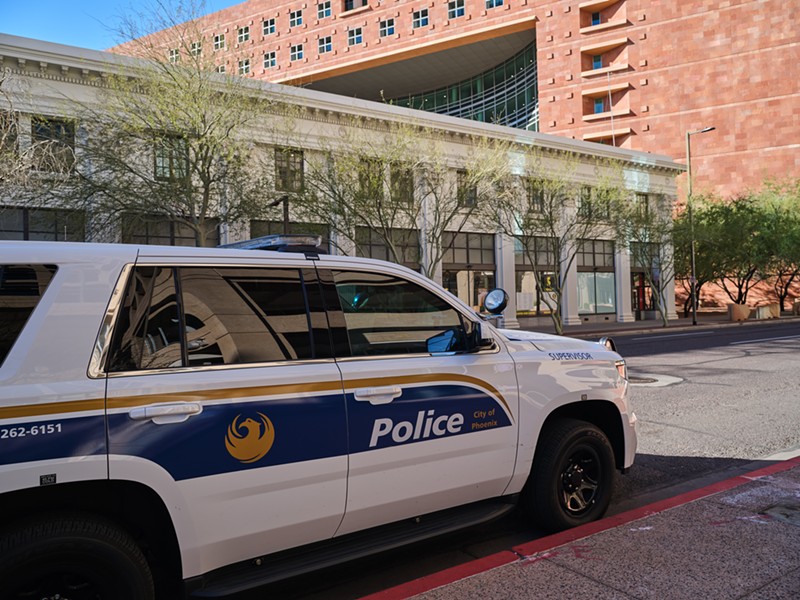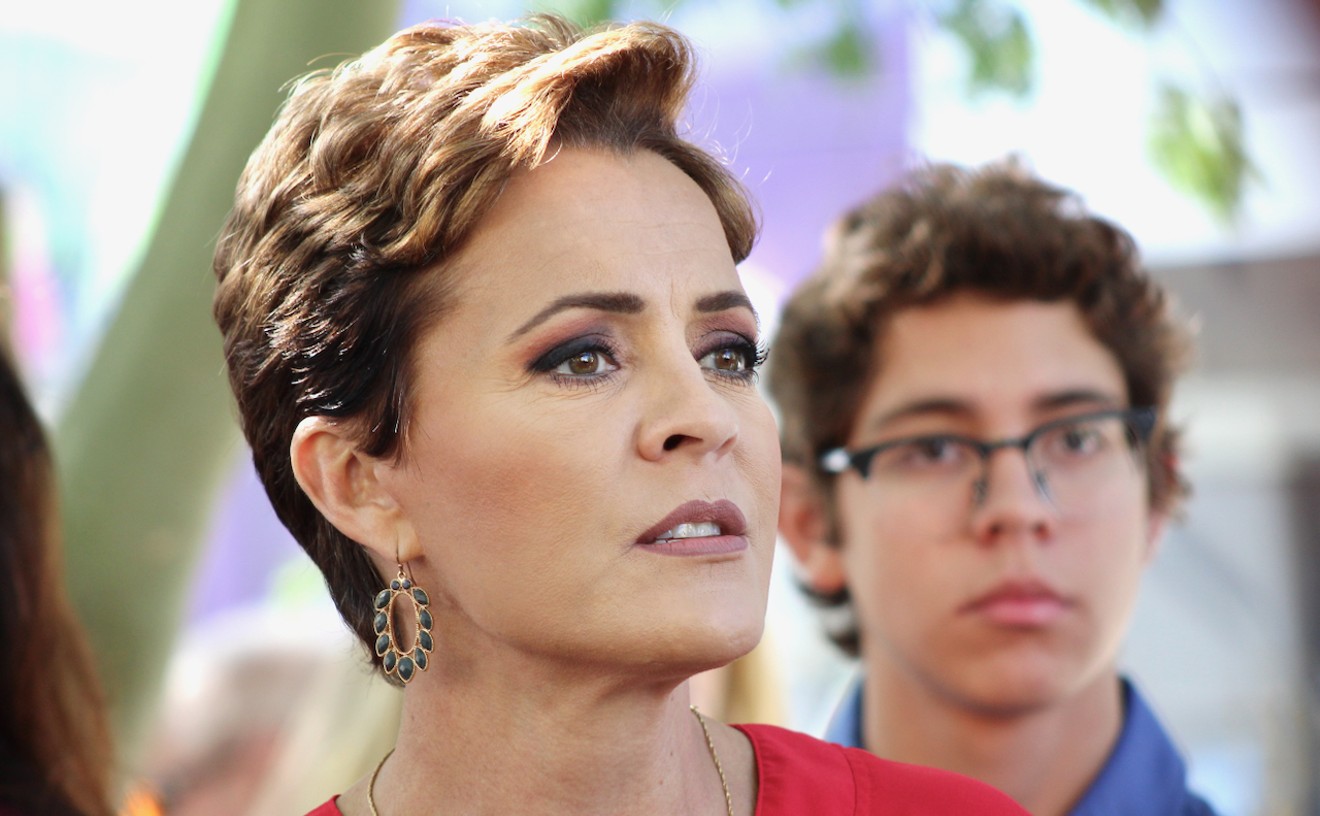Arizona State University researchers measured public sentiment about what should happen after police shoot civilians while on the job.
State lawmakers requested that Arizona State University's Morrison Institute for Public Policy survey at least 1,000 people across the state of various races and ethnicities for a sense of the public's trust in local law enforcement.
Now lawmakers are considering legislation that could change the standard process by which local police investigate their own officers for any misconduct in the field.
The survey was funded by Phoenix-based nonprofit Arizona Community Foundation, a philanthropic organization that invests donor money in various ways, from community development projects to arts and culture programs.
Alison Cook-Davis is a research director of the Morrison Institute who spearheaded the survey about trust in law enforcement.
“This particular topic has been in the hearts and minds of Arizonans,” Cook-Davis told Phoenix New Times.
ASU released the results this week.
Respondents considered four options: a task force, a state agency, an outside police department, or the shooting officer’s own department. The latter was markedly the least desirable course of action among survey respondents.
The majority of Arizona residents who responded to the survey, 51 percent, supported the creation of a statewide independent agency to investigate when police shoot civilians.
Among survey respondents who are Hispanic or Latino, 54 percent supported the new agency while 60 percent of Black respondents agreed that outside scrutiny is needed.
“As a public policy institute, we are very excited that the data is actionable,” Cook-Davis said. “It means that [legislators] are taking into account the opinions of Arizonans.”
People of color are more likely to be wounded and killed by police bullets in Arizona. Sometimes individuals are suspects of a crime and wield weapons, but in some situations are completely unarmed when interacting with police.
Emilio Chamizo, a 30-year-old Arizona resident was shot and killed by police near 27th Avenue and McDowell Road on Monday. Phoenix Police Department Spokesperson Sergeant Phil Krynsky told the Arizona Republic that Chamizo was "standing in the area near the intersection with a knife when police arrived," in response to a 911 call about a woman who was stabbed.
In contrast, former Arizona Department of Corrections Director Charles Ryan was not even booked into jail after an armed standoff with Tempe Police Department in early January. Ryan was instead transported to the hospital to take care of his medical needs after a self-inflicted wound.
One shooting was in Gilbert and the other three were in Mesa, with two fatalities at the hands of the Mesa Police Department.
The average age of people shot by police in Arizona is 35 years old, according to an investigation by the Arizona Republic.
Arizona was ranked fourth in the nation for the highest rate of police shootings which resulted in death per one million people. It was behind Alaska, New Mexico, and Oklahoma. Maricopa County stood out as ninth out of all counties nationwide for its high fatal police shooting rate. There are more than 3,000 counties in the United States.
The Phoenix Police Department describes any police shooting as an "officer-involved shooting incident."
In 2018, Phoenix police officers opened fire on 44 people over the year. By 2020, there were 26 incidents, and last year there were 13 incidents, police data shows.
The Phoenix City Council has voted to shell out tens of millions of taxpayer dollars to settle lawsuits brought by the families of people killed by police officers in the city over the past decade.
In November 2021, the city council approved $5 million for the family of Muhammad Muhaymin who was killed by police in 2017.
The officers involved in Muhayim's case were investigated internally by the Phoenix Critical Incident Review Board, a group of civilians and department employees who review any deaths of people while in police custody.
The police officers were ultimately not charged with any crimes in the case.
Big settlement payouts without police officer accountability erode the foundation of trust, survey respondents suggested.
Respondents of all races favored holding police accountable above transparency, swift action, and adherence to standard procedures after they pull the trigger on a member of the public.
Arizona lawmakers behind the bipartisan bill HB 2650 could change the process in the aftermath of such shootings by creating a new branch inside the Arizona Department of Public Service.
The Arizona House Military Affairs & Public Safety Committee voted to move forward on the bill this week which would, if enacted, create a statewide independent investigation agency by July 2025. However, state oversight would be voluntary, and a neighboring law enforcement agency or regional task force could control the probe, not state administrators.
House Speaker Rusty Bowers, a Republican who represents the city of Mesa, sponsored the bill alongside
“The current divide in America over the state of policing has been polarizing,” Bowers said in a statement. “What each side shares in common is the desire for increased accountability and reaffirming public trust in law enforcement agencies.”
When it comes to rebuilding trust, there’s still work to do since 60 percent of Arizona respondents overall said they trust the police.
But fewer than half of Hispanic or Latino respondents and less than one-third of Black respondents said they felt the same way.
“It’s easy to say something is obvious when you already have evidence for it,” Cook-Davis said. “But as a researcher, I want to see what the real data is.”









